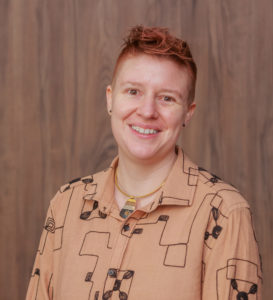By Valerie Naidoo, Manjusha Sunil and Phillip Majeke, Water Research Commission
The Water Efficiency Labelling Scheme (WELS) and its Role in Stimulating Uptake of Water-Efficient Devices
South Africa is projected to face a 17% water supply deficit by 2030, highlighting the urgent need for sustainable water management solutions. In response, the Department of Water and Sanitation (DWS), in collaboration with the Water Research Commission (WRC), South African National Energy Development Institute (SANEDI), and the Department of Trade, Industry and Competition (dtic), is developing a Water Efficiency Labelling Scheme (WELS) aligned with international standards (ISO 31600).
The WELS initiative aims to promote the adoption of water-efficient products by providing clear and standardized information on water consumption for taps, fixtures, and other appliances. This standards-driven approach enables consumers and building professionals to make informed decisions, supporting the uptake of water-efficient technologies in homes and commercial buildings.
Key objectives of WELS includes:
- Raising awareness about water efficiency and the role of labelling in sustainable water use.
- Encouraging the adoption of water-saving devices in residential and commercial buildings.
- Establishing regulatory frameworks to enforce compulsory specifications for water-efficient products.
- Facilitating industry collaboration to ensure a seamless transition to water-efficient technologies.
The WELS project is in its third year, with significant stakeholder engagement from organizations such as the South African Bureau of Standards (SABS), National Regulator for Compulsory Specifications (NRCS), the Institute of Plumbing South Africa (IOPSA) with CLASP providing technical support. There is an upcoming WELS Stakeholder Consultation Forum, scheduled for May 2025, which will serve as a key platform to gather strategic and technical input on the scheme’s development.
Aligning with GBCSA’s Water Efficiency Goals
Integrating these water and sanitation technologies into green building certification frameworks can accelerate South Africa’s transition towards net zero water buildings. GBCSA’s rating tools emphasize reducing water consumption, improving wastewater treatment, and enhancing water management strategies. By incorporating these innovations and aligning with WELS, new and existing developments can enhance their water resilience while minimizing environmental impact. The WRC plays a critical role in recommending new reuse and fit for purpose water quality guidelines to ensure safety to the public as we make this transition towards resilient cities and towns.
Conclusion
As South Africa, moves towards increased water security, it is important that business sector and developers shift towards greater water efficiency. The adoption of water-efficient toilets, greywater recycling, non-sewered sanitation, smart water management, and rainwater harvesting systems presents a transformative shift in building water management. With the Water Efficiency Labelling Scheme (WELS) providing a regulatory framework to guide the selection and uptake of water-efficient devices, South Africa is taking critical steps toward a water-secure future. Collaboration between research specialists, industry stakeholders, policymakers, and certification bodies will be key to driving widespread adoption and ensuring sustainable and safe water management in buildings across the country.
Click here to register your interest for the upcoming WELS Stakeholder Consultation Forum on 14 May.
Find out more on the website

A Note from GBCSA Research and Content Co-ordinator, Abi Godsell
At the GBCSA research desk, we like to go beyond the everyday, and bring you exciting research ‘nexts’ when we have the privilege to encounter them. The Water Efficiency Labelling Scheme (WELS) is one of these. Search for it on Google, and you’ll find hints, rumours, excellent (if lengthy!) research, and fierce arguments for its urgent necessity. But you won’t find the scheme itself. That’s because the scheme, at least it’s local incarnation, is still being put together collaboratively by industry experts in the water efficiency space. This work of co-design for a more sustainable future is on-going, and continues to be led by the WRC.
Watch this space, and while you wait, have a look at this excellent overview of what scaled water efficiency could mean for South Africa. If you pay attention to the authorship, you may recognize some well-known green building names too!
About the authors:
Dr Valerie Naidoo – Senior Research Manager: Advisory Services
Manjusha Sunil – Programme Manager for Water Technologies Demonstration Programme (WADER)
Phillip Majeke – Commercialisation Manager
at the Water Research Commission



